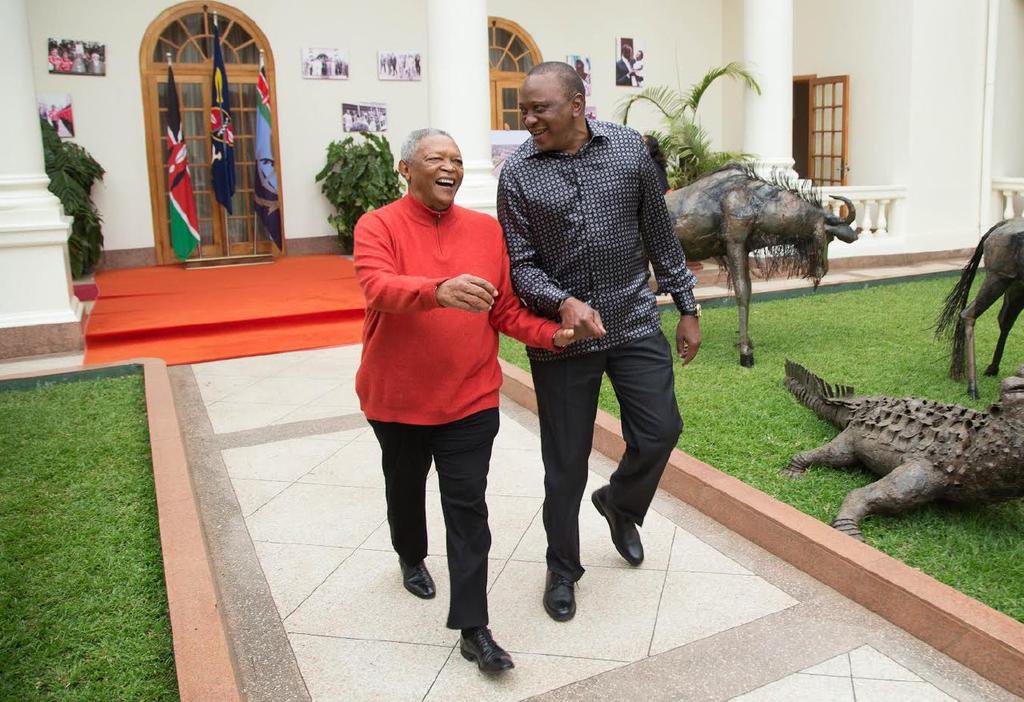Kenya’s President, Uhuru Kenyatta has said that fallen South African Jazz legend, Hugh Masekela will be remembered as having been “a voice of Africa’s liberation”.
Masekela, a powerhouse Jazz artiste who rose to fame after fighting against the apartheid regime in South Africa died on Tuesday at the age of 78.
Kenyatta paid tribute to Masekela as a friend who was “energetic, full of life, and as optimistic as ever”.
He wrote that despite having been born at a time when South Africa was still in the grips of White Supremacy, the singer managed to use his music as symbol of liberation.
“Though born in a South Africa still under the sway of White supremacy, his talent quickly distinguished him,” President Kenyatta said.
“His music then was the music of a free Africa: full of anger at injustice; confident that one day these injustices would be overcome”.
Kenyatta said that Hugh Masekela’s life was so long, rich and so inspiring. In August 2016, Masekela paid a courtesy visit to President Kenyatta at State House in Nairobi, Kenya.
The two had discussed among other things how to institutionalize arts & culture in schools.
Masekela died after suffering from prostate cancer for close to ten years. He last performed in 2010 in Johannesburg.
“It is a terrible surprise to hear that he has left us. I give thanks for his life, for his music, and for who he was: a man of courage and joy; a proud African; and the voice of Africa’s liberation,” President Kenyatta wrote on his social media, hours after the news about Masekela’s death broke.
Born in Witbank, a mining town in eastern South Africa, got his first trumpet from the anti-apartheid activist archbishop, Trevor Huddleston.
He later came to compose songs that were became pivotal in the struggle and was forced into exile.
Kenyatta said that despite these attempts to weaken Masekela’s spirit, “he never forgot his obligations to Africa either: he mentored African musicians, and remained as creative in his blending of Jazz and African sounds in his old age as he had been in his youth”.
“His songs, it is fair to say, were the sound of freedom, not just for South Africa, but for Africa too,” he added in his tribute.








